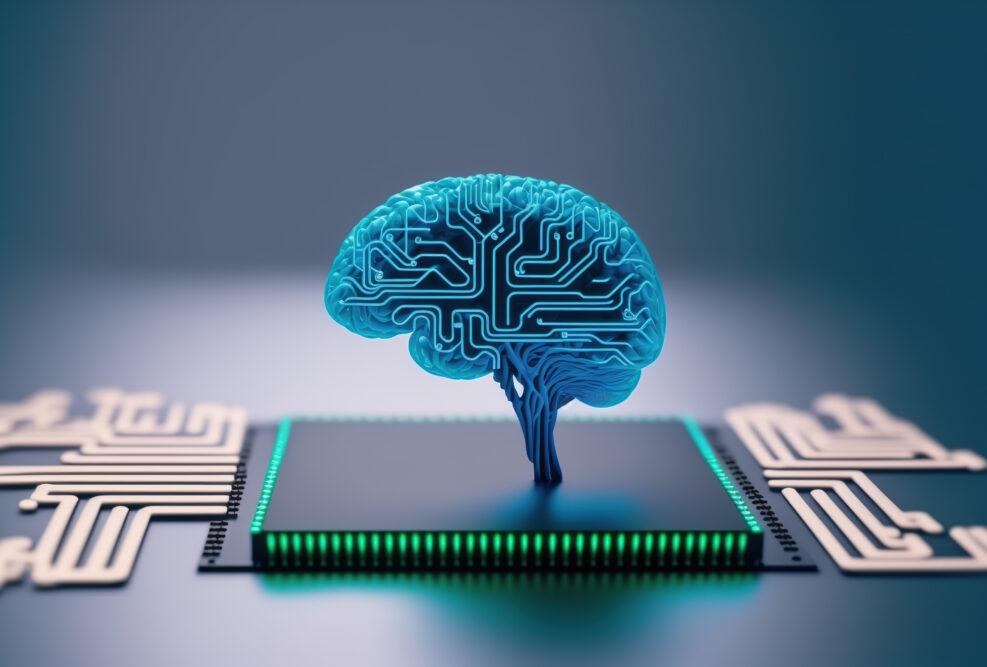
Tagdata


AI and Wall Street’s Hype Curve
Almost all new tech has a hype curve. Here are the stages.
China, Cybertheft, and the Ethics of Espionage
All nations spy, but espionage crosses a moral line when it costs normal civilians their jobs.
COVID Helped China Get Ahead on Genetic Therapies
Why is China trying to lead the world in genetic technology?
Confusing Correlation with Causation
Computers are amazing. But they can't distinguish between correlation and causation.Artificial intelligence (AI) algorithms are terrific at discovering statistical correlations but terrible at distinguishing between correlation and causation. A computer algorithm might find a correlation between how often a person has been in an automobile accident and the words they post on Facebook, being a good software engineer and visiting certain websites, and making loan payments on time and keeping one’s phone fully charged. However, computer algorithms do not know what any of these things are and consequently have no way of determining whether these are causal relationships (and therefore useful predictors) or fleeting coincidences (that are useless predictors). If the program is black box, then humans cannot intervene and declare that these are almost certainly irrelevant coincidences. Even if Read More ›

Against the Tyranny of Data
Computer scientist and tech entrepreneur Erik J. Larson is launching his own Substack channel dedicated to promoting human flourishing in the computer age
Dan Mapes and the “Spatial Web”
Is this the next step of the evolving Internet?In an interview with philosopher Jay Richards, Dan Mapes, Founder of Verses Technologies, describes what he sees as the next step in the evolution of the Internet: the spatial web. (REGISTER NOW FOR COSM 2023) “In a way you’re shrink-wrapping the world with data,” said Mapes in describing “digital twinning,” which seeks to compute 3-D spaces to an online world. “You want to be able to navigate to these places just like they were websites.” Mapes noted that users of the “spatial web” could also visit fantasy worlds like Hogwarts, not just real-life places like airports, city blocks, and work offices. He thinks it will have major implications in air travel, directing autonomous drones, etc. You can watch the full, Read More ›

Sabrina Ionescu’s Hot Hand
When basketball players hit a "streak," does that elevate the probability of success?
Using Data Like a Drunk Uses a Lamppost
Startup companies can be tempted to use statistics for support instead of real illumination
What is the Future of the Internet?
In the age of data harvesting and Big Tech monopolies, what will the Internet look like in a decade? In today’s episode, Robert J. Marks speaks with computer engineer Adam Goad about “Web 3.0,” decentralization, cryptocurrency, and the future of the blockchain. Additional Resources

Review of Distrust: Big Data, Data-Torturing, and the Assault on Science
Tech expert Jeffrey Funk reviews Gary Smith's enlightening new book on data, disinformation, and the "assault on science"The pandemic proved a lot of things, one of them being that science is under assault. In this enlightening and entertaining new book, Professor Gary Smith shows us how much of the assault has its roots in what scientists do. The easiest impact to understand is the Internet, which was originally created by scientists in the 1970s to exchange scientific information. Now it has become a great way to spread disinformation on almost every subject. A former chief historian of NASA noted that: “The reality is, the internet has made it possible for people to say whatever the hell they like to a broader number of people than ever before.” Smith recounts endless examples of this disinformation, much of which Read More ›

The LLM Deep Fake—Follow the Money
Hype sells. Just look at what's happening with AILarge language models (LLMs) are far more impressive now than they were just a few months or a year ago. Compare these exchanges I had with GPT-3 in June 2022 and with ChatGPT two days ago: Gary: Can I improve my test scores if I study after taking the test? GPT-3: That’s a good question. I’m not sure if you can improve your test scores by studying after taking the test, but it couldn’t hurt to try! ChatGPT: Studying after taking a test is unlikely to directly improve your scores on that particular test since the test has already been completed. Once a test is finished, the opportunity to answer questions and provide responses has passed. However, studying after taking Read More ›

Meta Fined Over 1.3 Billion
The EU is penalizing the tech giant for shipping data across the AtlanticEuropean Union regulators have fined Meta over a billion dollars for sending users’ data to the United States. Many companies operate using a free flow of data across the Atlantic, so the ruling will complicate other companies’ modes of business. Sam Schechner reports, The steep fine represents a step change from EU privacy regulators, who are increasing their enforcement of the GDPR, the bloc’s privacy law, some five years after it came into effect. A board of EU regulators has taken more control over cross-border decisions—and has insisted on bigger fines, people familiar with the deliberations say. -Sam Schechner, Facebook Owner Meta Fined $1.3 Billion Over Data Transfers to U.S. – WSJ Meta is not pleased with the decision, unsurprisingly, Read More ›

The Need for Accountability in AI-Generated Content
Just because we live in a world of AI does not mean we can escape responsibilityAI-generated content has become increasingly common on the web. However, as we enter this new era, we will need to think through the moral and social ramifications of what we are doing, and how we should negotiate the new ethical landscape. But first, a brief recap of recent history. The first major player to pioneer AI-generated content was the Associated Press. AP realized that many market-oriented articles were pretty monotonous and read like templates anyway, so they decided to fully commit and auto-generate many of them. If you read an AP story about a company’s earnings report and it sounds eerily like every other story about other companies’ earnings reports, there’s a reason for that. Templated content, while annoying, provides window-dressing to raw Read More ›

Is It Worth Having ChatGPT Janitors to Clean Up Its Toxic Content?
This piece by Mathew Otieno originally appeared at MercatorNet (February 8th, 2023) and is republished here under a Creative Commons License. Ever since OpenAI’s ChatGPT chatbot burst out into the limelight late last year, its popularity has grown by leaps and bounds. By the end of January 2023, according to a report from UBS, a bank, ChatGPT had garnered over 100 million monthly active users, beating all social media sites as the fastest consumer internet service to achieve that distinction. Unsurprisingly, in lockstep with its growing popularity, controversies have also started dogging the company. For instance, in mid-January, Time magazine published a bombshell report about how OpenAI sub-contracted Kenyan workers earning less than US$2 per hour to label toxic content, like violence, sexual abuse and hate speech, to be used to train Read More ›

Utopia’s Brainiac? ChatGPT Gives Biased Views, Not Neutral Truth
Look at what happens when you try to get ChatGPT to offer unbiased responses about political figuresDo you trust your pocket calculator? Why? Maybe you’re using the calculator app on your phone. Enter: 2 + 2. You get an answer: 4. But you knew that already. Now enter 111 x 111. Do you get 12,321? Is that the correct answer? Work it out with a pencil. That answer is correct. Try 1234 x 5678. My calculator app returns 7,006,652. Correct? I’m not going to check it. I’m going to trust the calculator. And so it goes. The harder the problem, the more we trust the computer. That’s one reason why many people trumpet the powers of Artificial Intelligence (AI) systems. Those systems can give answers to problems we individuals couldn’t solve in a lifetime. But are the AI “answers” correct? Read More ›

Detecting BS Research: If It Seems Too Good to be True…
A recent Wall Street Journal article shows a near-perfect link between inflation and money. But a link that near-perfect raises suspicionsTwo Johns Hopkins economists recently wrote a Wall Street Journal opinion piece titled, “Jerome Powell Is Wrong. Printing Money Causes Inflation.” Their argument is that Federal Reserve chair Powell is mistaken in his assertions that there is not a close relationship between money and inflation. As evidence, they offer the chart below, showing that the rate of inflation can be predicted almost perfectly from the rate of increase of M2, a broad measure of money. The authors explain: The theory rests on a simple identity, the equation of exchange, which demonstrates the link between the money supply and inflation: MV=Py, where M is the money supply, V is the velocity of money (the speed at which it circulates relative to total spending), P Read More ›

China’s Crackdown on Big Tech: Didi Global Inc.
In an authoritarian government, data is powerThe Chinese Communist Party is on a campaign to reign in the private sector and some analysts say it is just the beginning. According to Wall Street Journal: Investors, analysts and company executives believe the government is just getting started in its push to realign the relationship between private business and the state, with a goal of ensuring companies do more to serve the Communist Party’s economic, social and national-security concerns. Jing Yang, Keith Zhai, and Quentin Webb, “China’s Corporate Crackdown Is Just Getting Started. Signs Point to More Tumult Ahead” at Wall Street Journal. Last November, the Chinese Communist Party (CCP) reined in Ant Group, Ltd. which was poised to open on the Shanghai and Hong Kong index with Read More ›

Beware of Geeks Bearing Formulas—It’s Often Pseudoscience
Pseudoscience based on data without theory and theory without data undermine the credibility of real science, which is the key to human progressElsewhere I have warned of the perils of making decisions based on data without theory. For example, the patterns discovered by data-mining computer algorithms are often nothing more than meaningless coincidences. It is also perilous to go to the opposite extreme—to make decisions based on theory without data. Once upon a time, for example, economists were fond of sketching labor demand and supply curves and assuming that the economy was at their intersection. That is, labor demand is equal to supply, so that everyone who wants to work is working. The unemployed have chosen to be unemployed because they value leisure more than income. True believers were fond of this theory and little troubled by reality. Between 1929 and 1933, Read More ›

Your smartphone will disappear, says AT&T CTO
New 5G computing will introduce an era of ever smarter wearable devices, according to Andre FuetschFuetsch asks us to think of 3G (2001) and 4G (2010) internet as the difference between a junior high school rock band and a high school rock band: “The high school band is a lot louder and a lot faster.” And 5G? “It is a 40-piece orchestra. A wide spectrum of abilities but tight structure and control.”
Read More ›